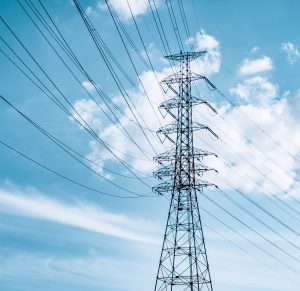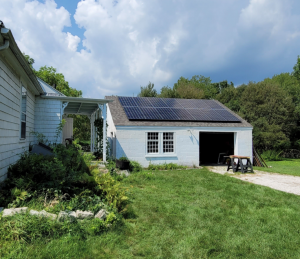On November 12, 2021, the U.S. Congress passed a key part of President Biden’s agenda (and solar policy): a $1.2 trillion bipartisan infrastructure bill. It contains plans to invest $550 billion in American infrastructure over the course of five years. On the same day, Biden announced that the first version of the Build Back Better Act (BBBA) was also sent to Congress, awaiting approval.
To those who support clean energy and solar policy, this is good news. The bipartisan infrastructure bill in particular includes money dedicated to improving America’s electric grid, which should help to dramatically improve our current aging electric grid. That’s important because our outdated grid technology continues to stymie the adoption of clean energy technologies. We see this play out when new customers find the utility has to update the transformer on their street before they go solar. Or in fact, we’ve seen grid issues that affect going solar for an entire town. As a result, upgrades will allow many more people to install solar energy. A power source that can not only be used in a customer’s own home or business, but also, when there is excess at a given time, in other buildings across the street, in other neighborhoods, or even in a few towns over.
Improvements to the grid’s energy efficiency and weatherization also simplifies introducing electric inputs from other renewable energy sources such as wind or large commercial size PV systems. This is because those upgrades strengthen the grid’s overall reliability and resiliency in nonideal conditions. With better performance, people can get more use out of renewable energy investments.
On the other hand, the Build Back Better Act (BBBA), focuses more on the actual development of clean energy itself. It in fact represents the largest effort to combat climate change in American history. A critical pillar of this effort is focused on the middle class. For example, the BBBA would provide large consumer rebates for residential clean energy and electrification investments that are intended to ensure that middle class families save money as they shift to clean energy. These measures are worth about $555 billion.
Although it benefits all clean energy types, this legislation would have powerful implications for solar energy in particular. For one, the law would expand the current solar Investment Tax Credit (ITC). The ITC is a federal tax incentive that comes in the form of credits that can be applied to the income tax you owe. Currently, in the case of solar, the ITC tax credit is worth 26% of the total system cost. So if you invested $20,000 in a new solar system today, your ITC would be worth $5,200. The BBBA, however, includes plans to increase the solar ITC to 30%. This solar policy would increase the ITC value of a $20,000 solar investment to $6,000 (an $800 increase in benefits!). The BBBA also plans to ensure that the solar ITC will stay in place for at least 10 years. That is significant because, while the ITC has been extended repeatedly, it has always been for just a few years at a time. That has made planning systems more difficult and thus more expensive. Because the BBBA would make the future less uncertain, planning and financing new systems would be less stressful and simpler to do.
That all said however, the BBBA has not yet passed the Senate, which leaves its exact details and actual passing somewhat in question. In particular, even if the Senate passes a version of the BBBA the bill must then go back to the House for approval of any changes made in the Senate. Only then would it go on to the President for his signature. In short, there is still a potentially long road left to travel.
But that all means that this coming year is particularly important if you are thinking of going solar. Specifically, if the BBBA is not passed the ITC will remain at just 26% but only through the end of 2022. Because in 2023 it will drop to just 22%. And after that, it will go to zero. Add to that the continued supply chain issues and 2023 may be a bit of a race to get your system installed. While conversely, if the BBBA does pass, any system built in 2023 is likely to get that new better tax treatment, assuming the change impacts the entire 2023 tax year.




